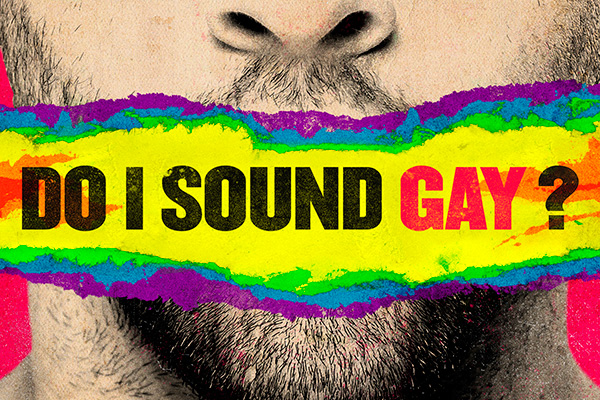
David Thorpe’s documentary Do I Sound Gay? follows his journey through speech therapy as he attempts to adjust his voice.
He looks at what it means to sound “effeminately gay” in interviews with linguists, friends and gay people—and where these stereotypes have come from. An important takeaway is that stereotypes of gay people can be internalised, leading to “a generic self-loathing around being gay”. The documentary explains that stigmatised groups try to keep that stigma at bay by hiding certain attributes.
“Effeminate gay” sounding voices come from picking up certain features that women use when talking. This is tied into myths that women should sound feminine. But Thorpe speaks to both “effeminate” sounding straight men, and “masculine” sounding gay men. Effeminate and sarcastic gay voices are also used to mock and stereotype gay men.
While it was taboo for many young gay men to resemble them out of fear, the projection of what being gay looked like affected how people acted.
Interviews discuss how some gay men are afraid to have effeminate voices as it can “repel” other gay men. Misogyny means some gay men don’t want to be perceived as feminine. One friend tells Thorpe that masculinity can also be a “conscious performance in gay male culture”.
Thorpe ends with the conclusion that how someone sounds is part of their identity and can be affected by their surroundings.
For some, sounding a certain way is important to signal who they are. Others try to hide it.
But shame and fear about sounding “gay” comes from societal pressures to fit gender stereotypes that should be rejected.